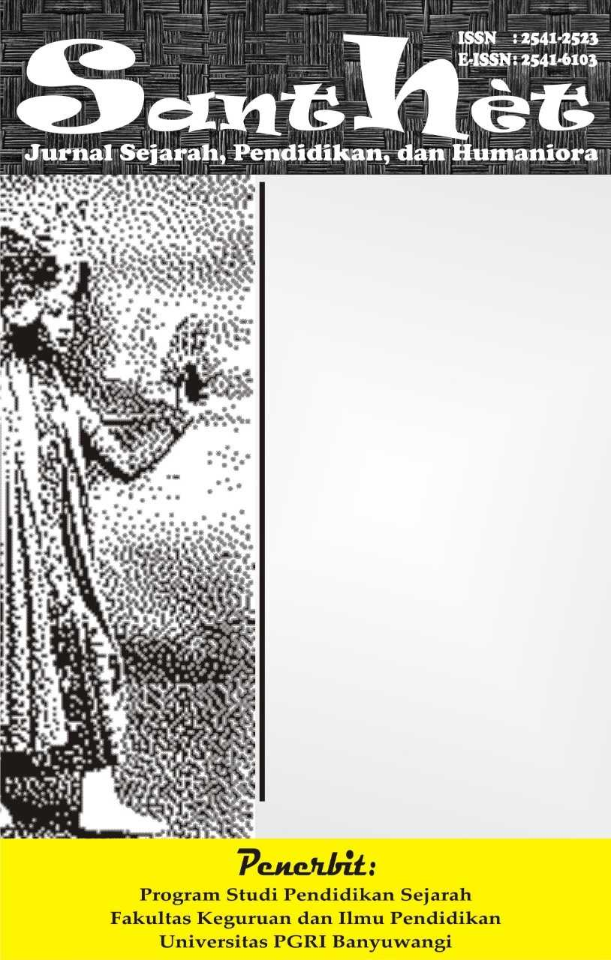Urgency of Living Legal Recognition in Criminal Law Reform in Indonesia
Keywords:
living law, criminal law, reformAbstract
This article aims to provide a prescription regarding the urgency of living legal recognition society in the principle of legality viewed from the perspective of legal sociology. Indonesia is a country that uses criminal law inherited from colonial products. At that time, there was an ideology of individuality, which is still the case today using the new colonial Criminal Code. With the principle of legality still in effect,
then it has a big influence on the existence and development of law in Indonesia, especially in relation to existing customary law. This is because the laws that live in society are original Indonesian laws and constitute of Indonesian national identity. So this recognition is not only related to legal recognition but also recognition of Indonesia's pluralistic society. Until now, the idea of legal recognition that lives in society is reflected in the thoughts of academics' thoughts on the principle of material legality. The principle of material legality in basically it is unknown in the European world, because it is the result of people's thoughts Indonesia about the wisdom tribes and nations in Indonesia. The principle of material legality is tried outlined in the Concept of the Criminal Code. Even though it's new tt is only hoped that the draft will soon be ratified by law makers.
References
Adiyanta, F. C. S. (2019). Hukum dan Studi Penelitian Empiris: Penggunaan Metode Survey sebagai Instrumen Penelitian Hukum Empiris. Administrative Law and Governance Journal, 2(4). https://doi.org/10.14710/alj.v2i4.697-709
Fajar ND, M., & Achmad, Y. (2007). Dualisme Penelitian Hukum. In Yogyakarta. Pensil Komunika (Vol. 1).
Jonaedi Efendi dan Johnny Ibrahim. (2018). Metode penelitian hukum: normatif dan empiris / Jonaedi Efendi, Johnny Ibrahim. Kencana, 2(Hukum).
Leonard, T. (2016). PEMBAHARUAN SANKSI PIDANA BERDASARKAN FALSAFAH PANCASILA DALAM SISTEM HUKUM PIDANA DIINDONESIA. Yustisia Jurnal Hukum, 5(2). https://doi.org/10.20961/yustisia.v5i2.8764
Pujilestari, Y., Haryanti, A., & Robian, A. (2014). Pengantar Hukum Pidana Material. In Buku Pengantar Hukum Pidana (Issue 1).
Sanjaya, N. (2021). Batasan Negara untuk Menentukan Tindak Pidana dalam Perspektif Teori Kontrak Sosial. SAPIENTIA ET VIRTUS, 5(1). https://doi.org/10.37477/sev.v5i1.209
Setyawan, V. P. (2021). ASAS LEGALITAS DALAM PERSPEKTIF FILSAFAT HUKUM. Justitia et Pax, 37(1). https://doi.org/10.24002/jep.v37i1.3276
Sonata, D. L. (2015). METODE PENELITIAN HUKUM NORMATIF DAN EMPIRIS: KARAKTERISTIK KHAS DARI METODE MENELITI HUKUM. FIAT JUSTISIA:Jurnal Ilmu Hukum, 8(1). https://doi.org/10.25041/fiatjustisia.v8no1.283
Sulaiman, S. (2018). Paradigma dalam Penelitian Hukum. Kanun Jurnal Ilmu Hukum, 20(2). https://doi.org/10.24815/kanun.v20i2.10076
Tahir, A. (2018). MENGGALI MAKNA ASAS LEGALITAS DAN PERKEMBANGANNYA DI INDONESIA. Al-Mazaahib: Jurnal Perbandingan Hukum, 6(2). https://doi.org/10.14421/al-mazaahib.v6i2.2319
Takdir. (2013). Mengenal Hukum Pidana. In Laskar Perubahan.
Vincentius Patria Setyawan. (2023). Pemaknaan Asas Legalitas Materiil Dalam Pembaruan Hukum Pidana Indonesia. Gudang Jurnal Multidisiplin Ilmu, 1(1). https://doi.org/10.59435/gjmi.v1i1.3
Widayati, L. S. (2011). Perluasan Asas Legalitas dalam RUU KUHP. Negara Hukum, 2(2).





























